The revolutionary nature of AI’s incorporation into sports cannot be overstated. But let’s face it, understanding how AI works and its impact on sports can be as complex as decoding a pitcher’s signals from behind the home plate.
Just like an athlete needs to understand their sport inside out to excel at it, we need to grasp what AI in sports truly means. And that’s where things get tricky for most people.
No worries, though! We’re here to break down this techy jargon and show you how transformative AI can be in reshaping the sporting landscape – from player performance analysis to fan engagement!
The Rise of AI in the Sports Industry
It’s no secret that artificial intelligence (AI) is making a splash across various sectors, and sports aren’t immune to this wave. This modern technology revolutionizes how teams practice, compete, and communicate with supporters.
In line with these projections, Allied Market Research also forecasts a similar growth trajectory for the industry. These predictions highlight just how integral artificial intelligence has become within sporting circles.
Fueling Factors Behind The Adoption Of AI In Sports
A primary catalyst behind this surge lies in AI’s ability to process vast amounts of data quickly and accurately – something human analysts may find challenging due to sheer volume or complexity.
This enables coaches, players – even fans – to make informed decisions based on reliable insights from such analyses. All are possible thanks to modern technology, from predicting match outcomes using machine learning algorithms or identifying strengths & weaknesses through advanced metrics analysis.
The Impact Of Artificial Intelligence On Different Aspects Of Sports
Sporting events have always been dynamic environments where split-second decisions can dramatically alter games; hence why tools capable of processing real-time information efficiently hold immense significance here.
Beyond helping referees make accurate calls during matches via predictive analytics capabilities, applications extend towards injury prevention among athletes through wearable devices monitoring heart rates & other vital stats continuously, assisting coaching staffs in devising effective training schedules tailored specifically towards each athlete’s unique needs while considering their physical condition too.
Unleashing the Power of AI in Sports Analytics
Sports analytics has been revolutionized by artificial intelligence and machine learning. These innovative technologies transform how sports teams analyze extensive data sets, providing invaluable insights that enhance player performance, inform strategic decision-making processes, and refine game strategies.
Predictive analytics powered by AI is a significant development in this arena. By analyzing historical data patterns with advanced algorithms, these tools offer forecasts about potential outcomes — giving sports teams an edge over their competitors as they can anticipate opponent moves more accurately.
Player Performance Measurement with AI
The application of artificial intelligence extends to measuring player performance too. It analyzes various factors, such as heart rate fluctuations or movement dynamics during games or training sessionss providing comprehensive insight into each athlete’s physical condition.
This information plays a crucial role not just in enhancing individual performances but also in injury prevention measures. Coaches now have access to detailed analysis, which allows them to design personalized training schedules tailored specifically for athletes’ unique needs while minimizing risks associated with strenuous exertion or improper techniques.
Predictive Analytics for Match Outcomes
Beyond improving player metrics and preventing injuries through smart monitoring systems, another critical area where AI shines bright is predicting match outcomes— an aspect vital within professional sporting circles among sports betting enthusiasts.
It demonstrates how combining statistical methods with machine learning solutions significantly outperforms traditional prediction models regarding forecasting football match outcomes.
By considering past performances alongside other influencing factors like weather conditions on the day of play or team morale levels at any given time, predictive models provide highly accurate projections regarding possible results— proving invaluable both from a strategizing perspective before major league baseball games, even kick-off right up until the final whistle blows.
Key Takeaway:
AI and machine learning are game-changers in sports analytics, revolutionizing player performance measurement, predictive analytics for match outcomes, and strategic decision-making. They provide teams a competitive edge by enabling accurate forecasts of potential outcomes and personalized training plans to prevent injuries.
The Role of AI in Player Recruitment
Artificial intelligence is becoming a game changer in how sports organizations scout for talent and make recruitment decisions. The deployment of machine learning algorithms enables these entities to analyze massive amounts of data about potential recruits, allowing coaches to identify strengths and weaknesses that might not be immediately obvious.
An example is how Major League Baseball teams like Oakland Athletics have harnessed artificial intelligence for their player scouting processes. They’ve developed an advanced analytics department that leverages AI to evaluate players based on performance metrics and other relevant factors such as injury history or age.
In addition, Los Angeles Dodgers are another team making strides in this area by employing ‘Edgertronic’, a system combining high-speed cameras with machine learning solutions, capturing minute details during games to analyze players’ techniques or predict future injuries.
AI-Powered Talent Scouting
Gone are the days when scouts relied heavily on personal observations and gut feelings while evaluating prospective athletes. This traditional approach often left room for bias due to human limitations in processing complex information rapidly.
Artificial Intelligence has filled this gap – providing objective analysis backed up by extensive data points from various sources, including game footage and statistics databases. These insights enable sports teams to make informed decisions regarding who to invest time and resources into recruiting.
Data-Driven Decisions
A significant advantage offered by using AI lies within its predictive analytics capabilities; it can forecast how well certain athletes will perform under specific conditions based on historical patterns found within big data sets.
Sports companies significantly benefit from this ability while making crucial draft picks or trade deals as uncertainties associated with such selections get reduced, improving overall team performance over time.
Furthermore, Sports Artificial Intelligence helps clubs manage budgets more efficiently since predictions about return on investment (ROI) from investing in particular athletes could now be made before signing multi-million dollar contracts.
Promoting Fairness & Transparency through AI
Last but certainly not least: deploying Machine Learning Algorithms adds transparency to the selection process because every decision could now be justified via tangible evidence rather than subjective opinions – thus ensuring fairness towards all aspiring athletes irrespective of their backgrounds.
Key Takeaway:
AI is revolutionizing sports recruitment, replacing gut feelings with data-driven decisions. Teams now harness machine learning to scout talent, analyzing vast amounts of data for objective evaluations and predictive analytics. This boosts team performance and promotes fairness and transparency in player selection.
Enhancing Fan Engagement with Artificial Intelligence
The merging of AI and sports has opened up a fresh period for fan involvement. The advent of AI-driven technologies, such as chatbots and social media algorithms, has redefined how sports companies connect with their audience during sporting events.
Social media platforms are primary channels for fans to stay updated about their favourite teams or players. However, filtering through millions of posts daily can be quite overwhelming. This is where AI-powered social media algorithms step in.
These advanced systems analyze user behaviour and preferences, curating personalized content feeds tailored specifically towards individual tastes – whether it’s updated on specific teams, player statistics, or news related to upcoming matches – ensuring that fans receive relevant information at all times.
Pioneering Chatbot Technology in Sports
Chatbot technology, another significant development powered by AI, has also made considerable strides in enhancing fan experiences. These virtual assistants use natural language processing (NLP) capabilities to understand user queries accurately and provide instant responses.
Apart from answering questions about match schedules and ticket availability, some sophisticated chatbots offer real-time game commentary. For instance, UEFA introduced an AI bot named Sam, who directly provided live updates on Euro 2023 games to users’ mobile devices.
Making Accurate Calls: The Role Of Virtual Referees
In addition to keeping fans informed and engaged off-field, artificial intelligence also makes waves within stadiums as ‘virtual referees’. By analyzing video footage using machine learning algorithms, these systems help make accurate calls during games, thereby reducing human error, which is a boon for officials and spectators seeking fair play.
Ethical Considerations & Challenges in Implementing Sports Artificial Intelligence
As AI and machine learning algorithms are increasingly adopted in the sports world, it is essential to consider potential ethical dilemmas that could arise. These concerns span from privacy implications to data accuracy questions and possible bias.
Privacy Concerns with AI in Sports
The application of AI often involves collecting extensive personal information about athletes for performance measurement purposes. This can encompass sensitive details such as heart rate, injury history, or genetic data. But who truly owns this wealth of information? And how securely is it stored?
Misuse or unauthorized access could lead to serious consequences for individuals and teams. It underscores why robust security measures are paramount when handling athletes’ private data.
Data Accuracy Issues
A significant concern surrounding the utilization of AI in sports analytics revolves around the accuracy of collected data. Statistics incorrectly analyzed or interpreted can potentially mislead coaches into making suboptimal decisions regarding player recruitment or game strategies.
This emphasizes ensuring high-quality input and using advanced machine learning solutions capable of accurate predictions. Continuous monitoring and validation are essential to achieving reliable results in these systems.
Potential Bias in Machine Learning Algorithms
Bias within machine learning algorithms presents another considerable challenge. For instance, if a model has been trained on biased historical performance where certain players were favoured over others due to their race or gender, there’s a risk that biases will be perpetuated in predictive models used for player recruitment purposes.
Care must be taken during the algorithm design process to avoid reinforcing existing prejudices in sport culture.
In light of all these challenges, it is vital to carefully consider the ethics of implementing technologies in sports. Effective regulation, coupled with continuous review of best practices, is key to maintaining trust among stakeholders and maximizing the benefits offered by modern technology.
Key Takeaway:
AI in sports brings about ethical challenges such as privacy concerns, data accuracy issues, and potential bias. To avoid perpetuating biases, it’s crucial to ensure robust security measures for athlete data, accurate predictions from machine learning solutions, and careful algorithm design. Continuous review of best practices is key.
The Future Landscape of Sports Industry with Artificial Intelligence
Anticipating a new dawn, the sports industry is set to be revolutionized by artificial intelligence. This epoch is characterized by groundbreaking advancements in artificial intelligence that promise to redefine traditional paradigms.
In essence, these innovations offer an exciting glimpse into what lies ahead for AI influences in sports.
Virtual Reality Training Environments
The advent of AI-powered Virtual Reality (VR) has opened up novel avenues for athlete training. These VR platforms simulate real-world sporting scenarios with remarkable precision, offering players a risk-free environment to sharpen their skills and strategies.
- Athletes can train without physical risks associated with actual gameplay.
- Data-driven insights help identify strengths and weaknesses overlooked during conventional methods.
- This allows coaches to make informed decisions about improving player performance based on accurate analytics from each session.
Automated Journalism Covering Sporting Events
Moving beyond playing fields into press boxes, Automated Journalism or Robot Reporting is another fascinating application where machine learning algorithms generate news stories using data inputs from sporting events. It’s not just about writing; it’s also about how this technology revolutionizes content delivery.
- Sports fans receive access to real-time updates faster than ever due to its scalability— AI systems cover multiple games across different leagues simultaneously without missing any critical moments, unlike humans who struggle under similar circumstances.
- Besides improved fan experience, there exist opportunities for monetization via sponsored content tailored specifically towards individual user preferences, thereby increasing overall engagement levels among audience members. The implications here extend beyond just enhanced spectatorship— they signal a fundamental shift in how we consume sport-related information today.
FAQs about AI in Sports
How is AI being used in sports?
AI is utilized for player performance analysis, game strategy development, talent scouting, and enhancing fan engagement. It’s also instrumental in injury prevention and personalized training schedules.
Can AI predict sports results?
Yes, AI can forecast match outcomes through predictive analytics by analyzing past performances and various other factors. This technology has found use in sports betting as well.
Does the NFL use AI?
Absolutely. The NFL uses artificial intelligence to analyze player stats, devise strategies, and improve athlete performance. It’s also leveraged for fan interaction during games.
How is AI being used in football?
In football, artificial intelligence aids with player recruitment decisions, formulating tactics based on data analysis of previous matches and improving individual players’ fitness levels through customized training programs.
Conclusion
The rise of AI in sports is nothing short of revolutionary, transforming everything from player performance to fan engagement.
Through advanced analytics and predictive models, teams can gain a competitive edge like never before.
Recruitment has been revolutionized with AI helping to scout potential talent more efficiently and effectively.
Fan experiences have also evolved significantly thanks to chatbots and social media algorithms powered by artificial intelligence.
However, it’s important not to overlook the ethical considerations of this technological advancement, such as privacy concerns or potential bias in machine learning algorithms.
Intrigued by how AI is shaping the future landscape of sports? At Markovate, we’re leveraging cutting-edge technologies like AI and ML for product development. If you are a startup or large corporation looking for bespoke software solutions, our proficiency can help elevate your business growth to unprecedented levels.

Rajeev Sharma
I’m Rajeev Sharma, Co-Founder, and CEO of Markovate, a digital product development company. With over a decade of experience in digital product development, I have led digital transformations and product development of large enterprises like AT&T and IBM.
My main areas of competence include mobile app development, UX design, end-to-end digital product development, and product growth. I hold a Bachelor’s Degree in Computer Science and certifications from the Scrum Alliance. Aside from my work, I am interested in Metaverse and closely following the latest developments.










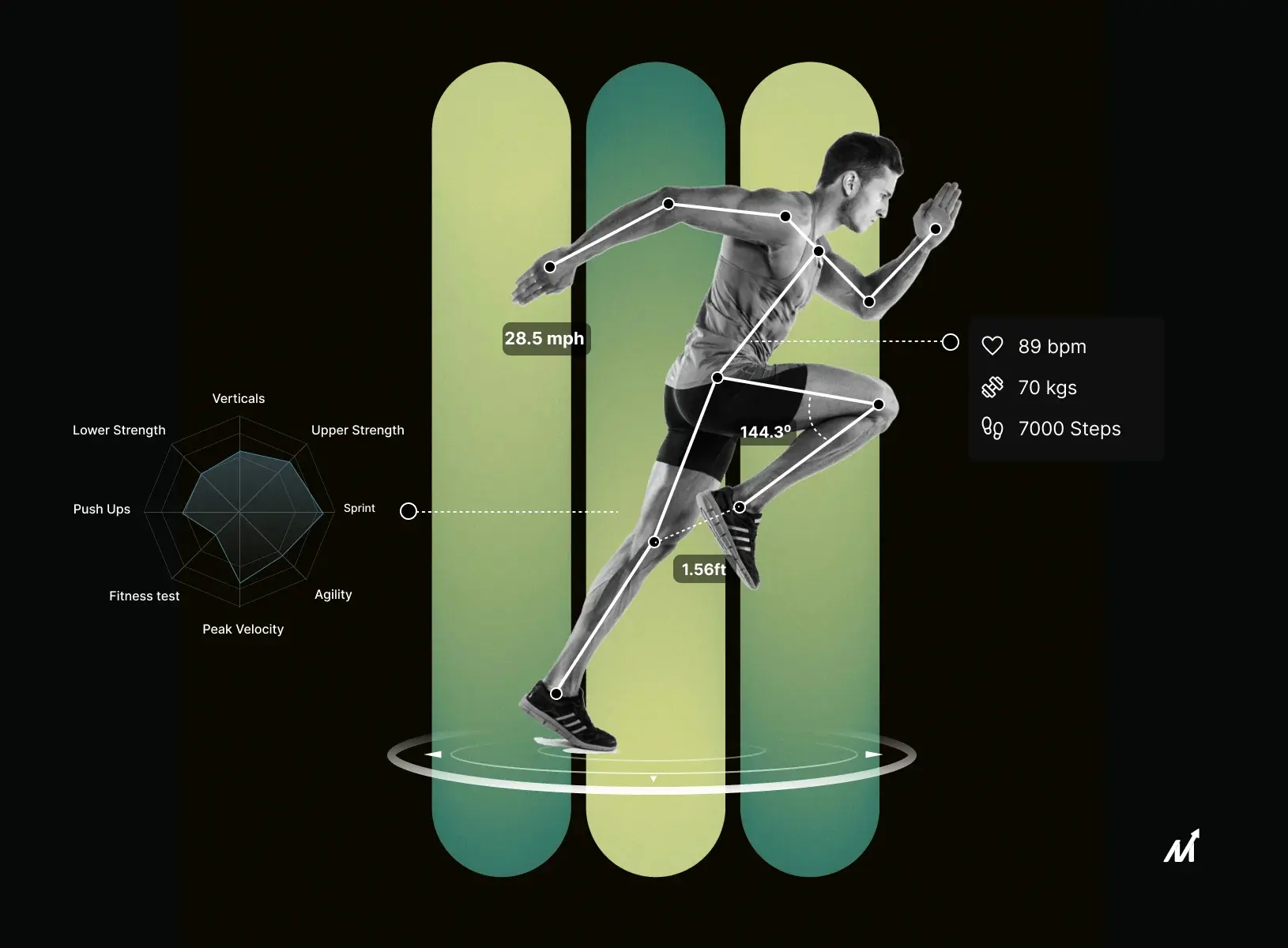
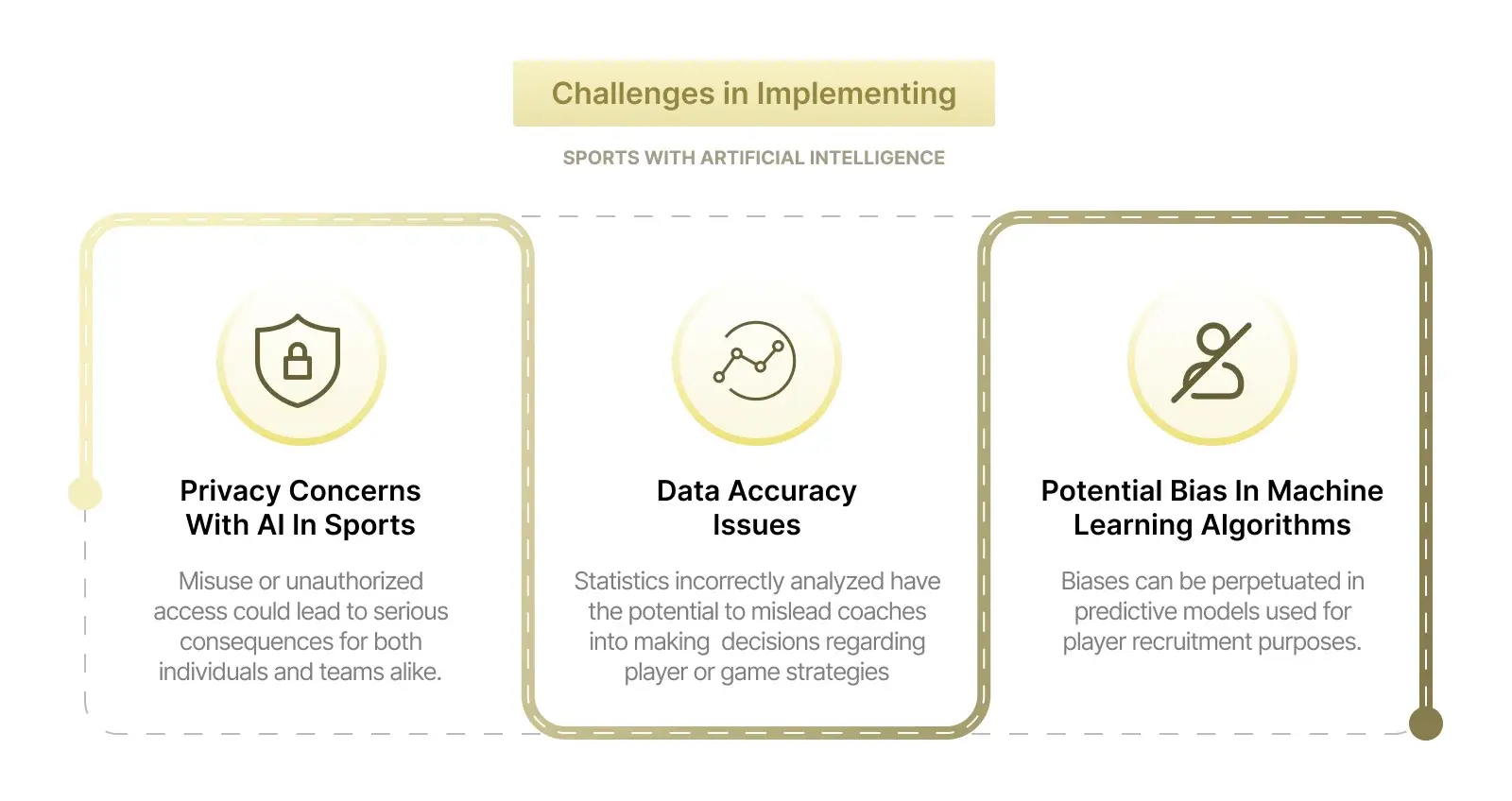


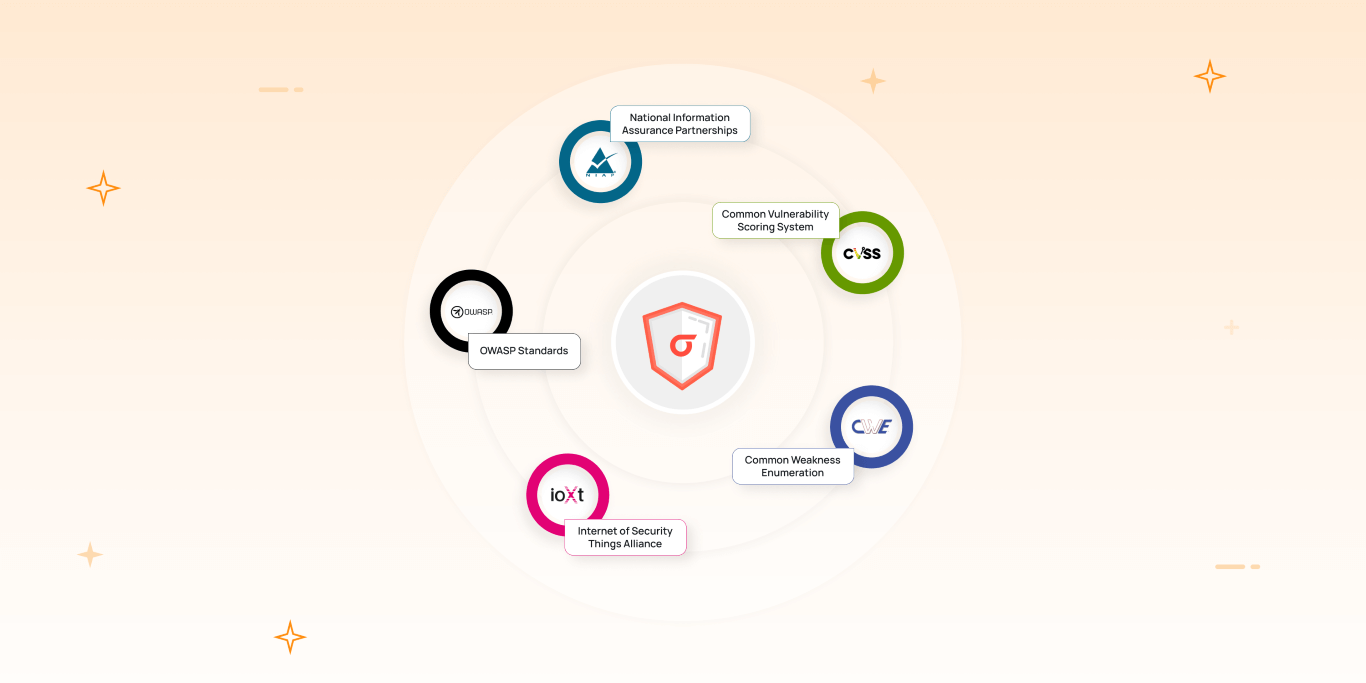
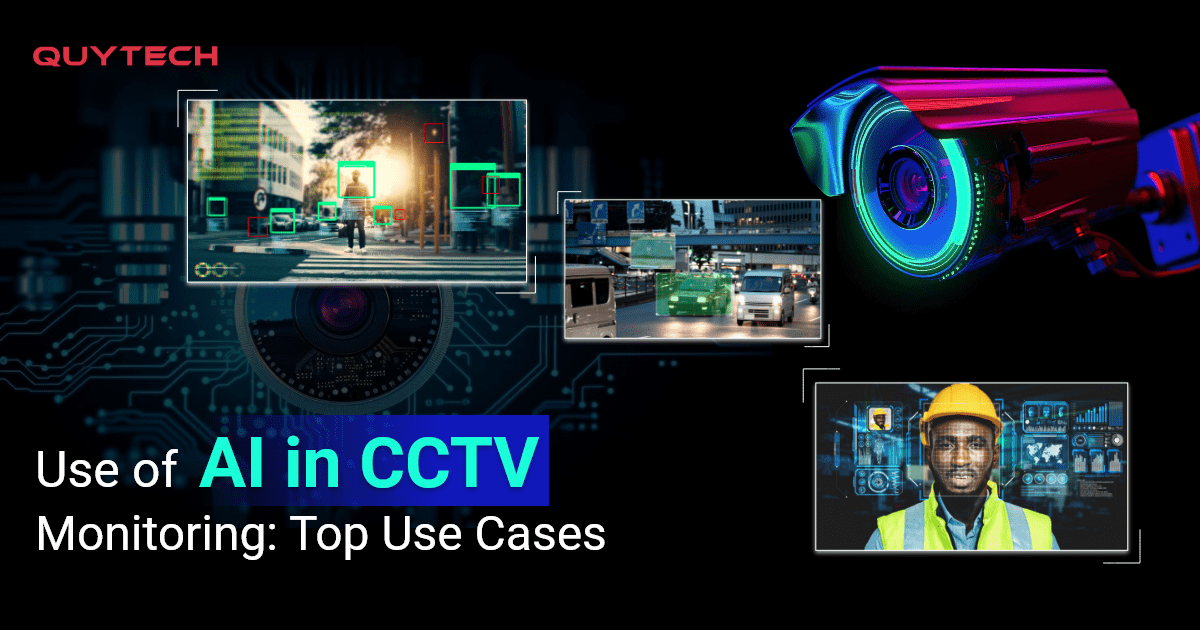
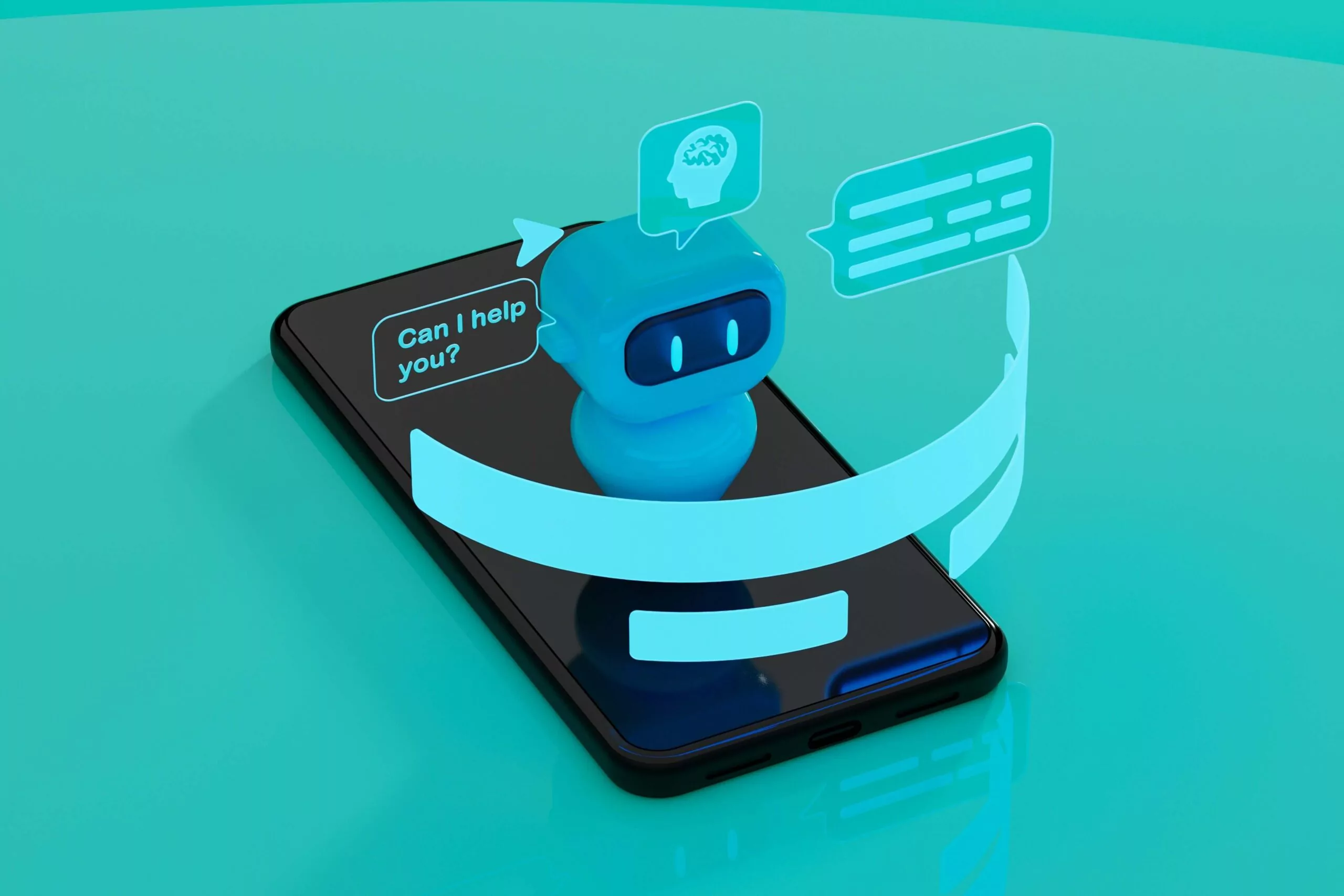






Discussion about this post